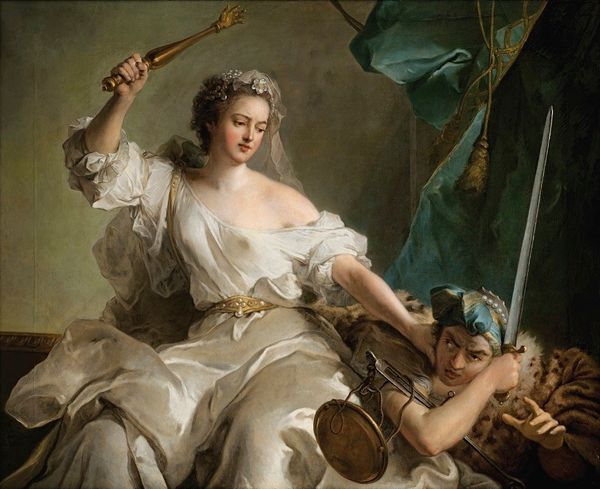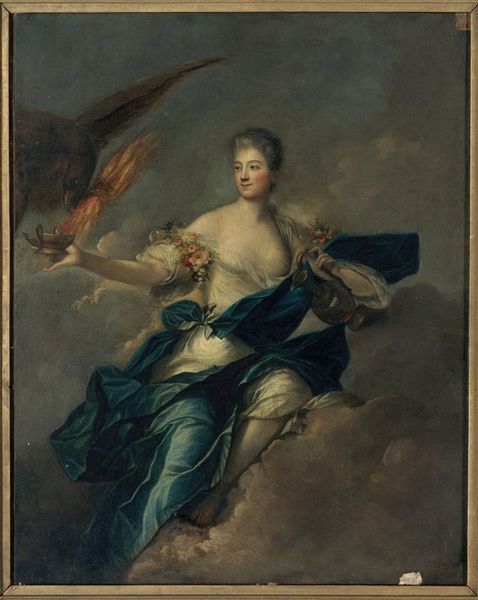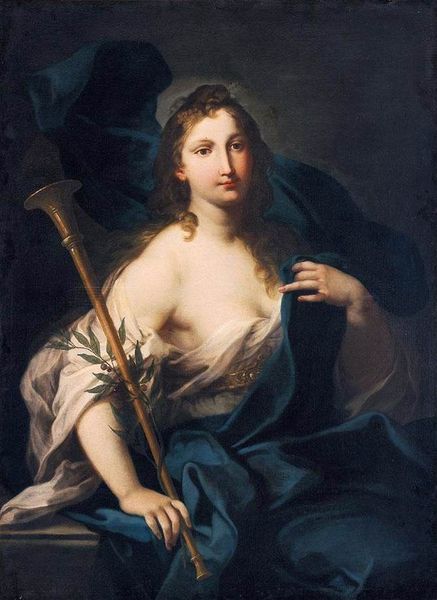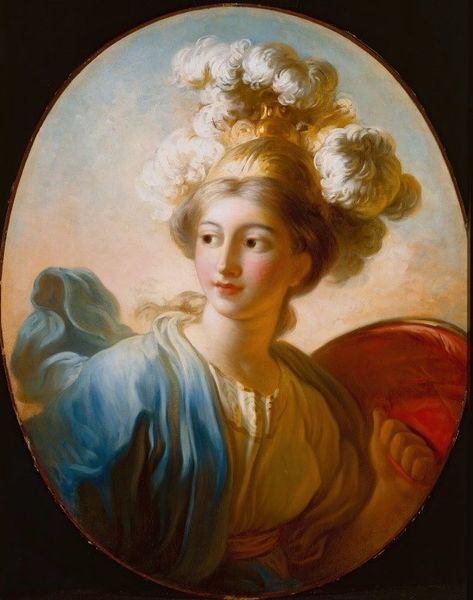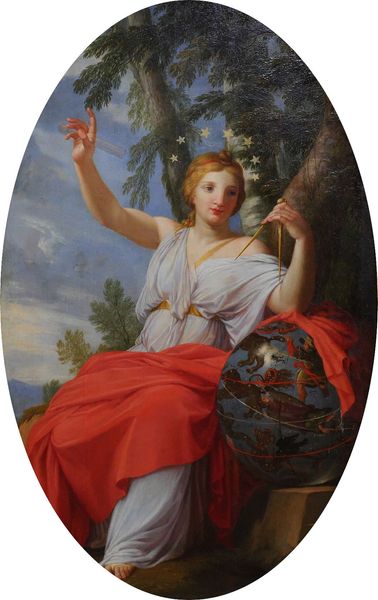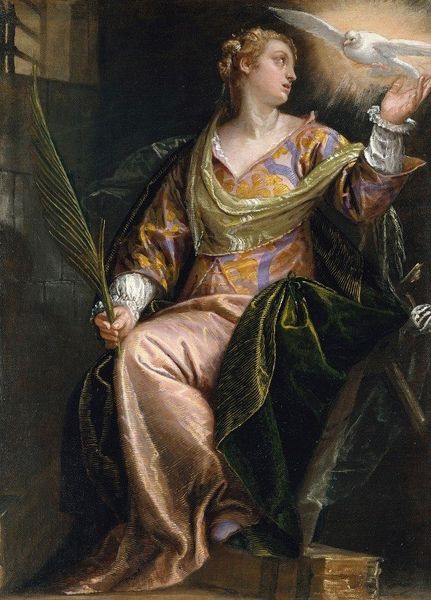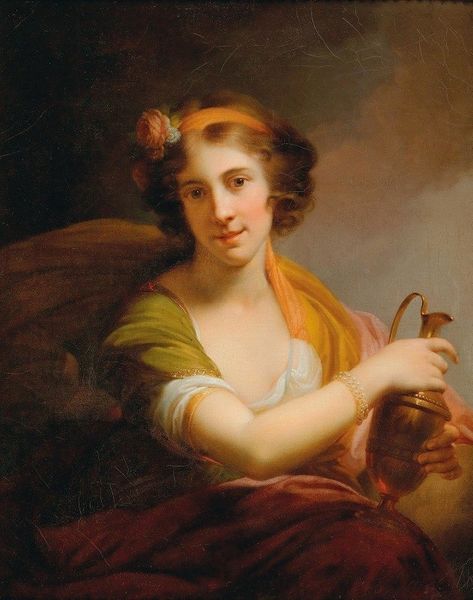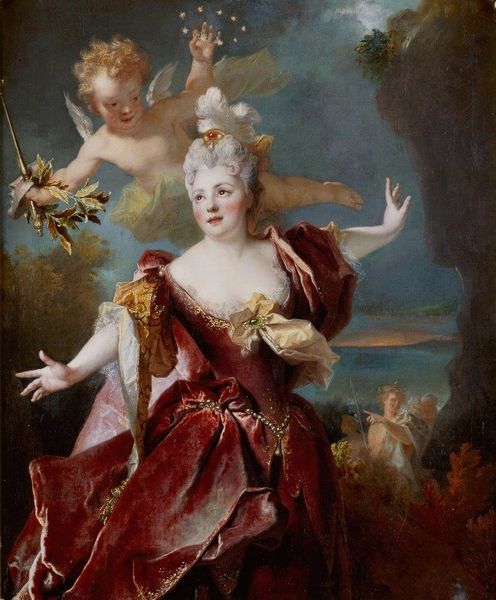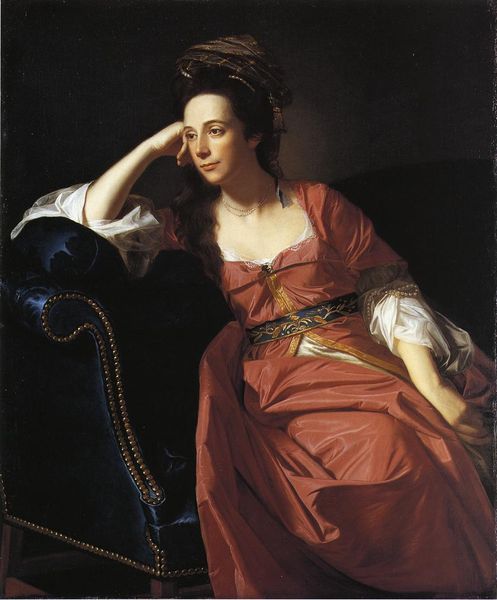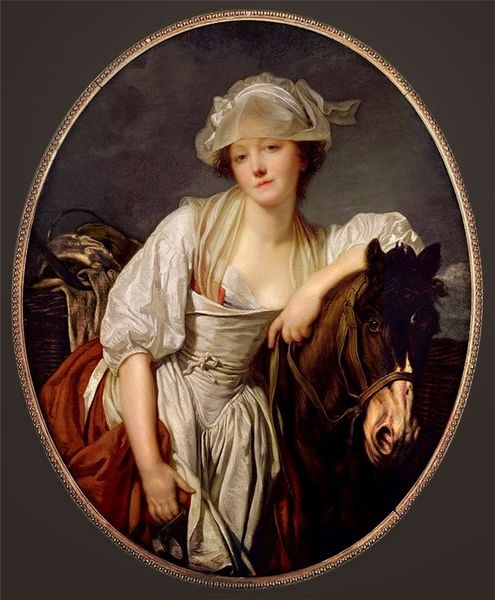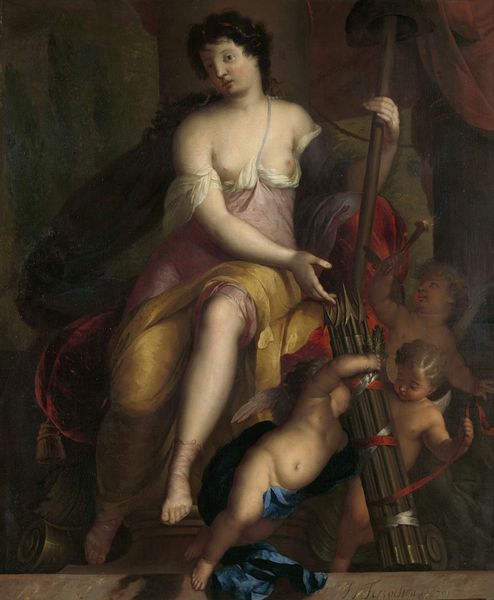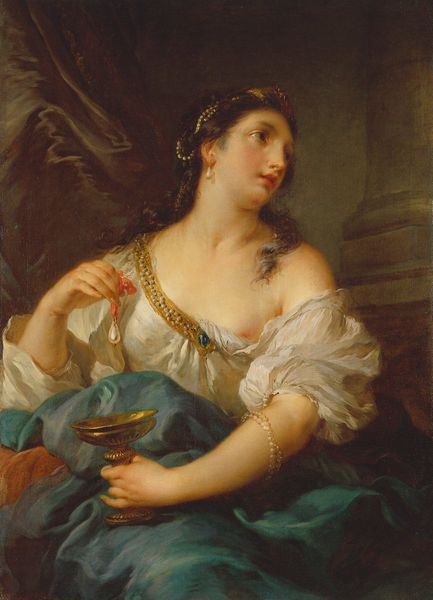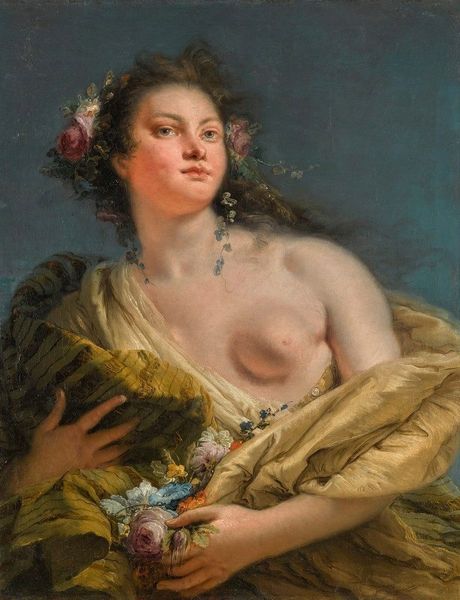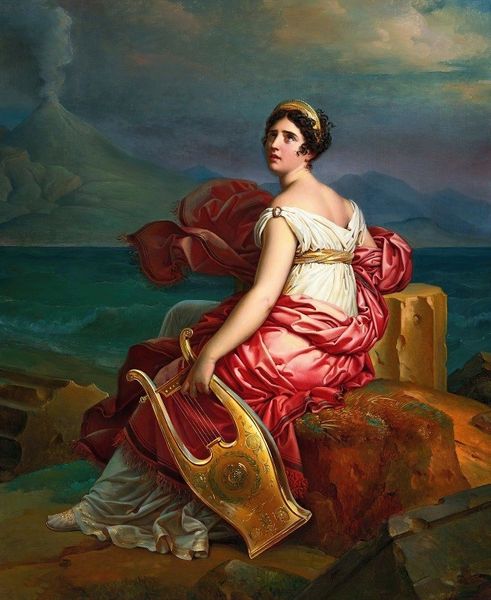
painting, oil-paint
#
portrait
#
allegory
#
painting
#
oil-paint
#
history-painting
#
academic-art
#
rococo
Copyright: Public domain
Jean-Marc Nattier rendered Terpsichore, the muse of dance, in oil on canvas in the eighteenth century. At first glance, the painting strikes you with its soft palette of creamy whites, gentle blues, and earthy reds. The muse is captured in a dynamic pose, with one arm raised as if in mid-gesture, holding a stylus, while the other cradles a lyre. This configuration immediately sets up a semiotic contrast: the stylus representing creative inspiration, and the lyre representing harmony and rhythm, key elements in the structure of dance. The artist creates a visual interplay between movement and stasis. Notice how the flowing drapery and the soft rendering of her skin contrast with the structured form of the lyre and the controlled gesture of her hand. These contrasts highlight the relationship between the spontaneous expression of dance and the underlying formal structures that give it shape. This challenges conventional notions of artistic representation by exploring the boundaries between form and freedom.
Comments
No comments
Be the first to comment and join the conversation on the ultimate creative platform.
